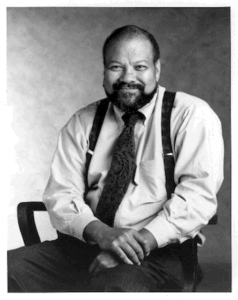
Henry Hampton
*The birth of Henry Hampton in 1940 is marked on this date. He was a Black filmmaker.
Hampton was born in St. Louis, MO, and as a child, suffered from polio. He obtained a B.A. degree from Washington University in his hometown. He was a renowned producer whose television documentary "Eyes on the Prize." This documentary set the pattern for nonfiction accounts of the 20th-century American civil rights movement. His films include The Great Depression and America's War on Poverty, both critically acclaimed. He made lasting contributions through his affiliations with institutions.
Hampton founded and ran Blackside Productions, one of America's largest Black-owned documentary film Production Companies. While there, he also served as executive director of Blackside's Malcolm X: Make it Plain and Breakthrough: The Changing Face of Science in America. His work focused on the lives of the poor and disenfranchised and chronicled the 20th century's great political and social movements.
He chaired the board of the Museum of Afro-American History in Boston, served on the board of directors for the Children's Defense Fund and Boston Center for the Arts, was a member of the Advisory Board of Beacon Press, and worked for the Unitarian Universalist Association from 1963 to 1968 as Director of Information. During that time, Hampton led the UUA Board in responding to Martin Luther King Jr.’s call for clerical leaders to come to Selma to participate in the Selma to Montgomery civil rights march in 1965.
In his career, he received fourteen honorary degrees from various universities across the U. S., including Northeastern University, Suffolk University, Washington University, St. Louis University, Brandeis University, Bridgewater State College, and Boston College. Hampton worked on several projects at his death, including "I'll Make Me a World: A Century of African American Arts, Artists, and Communities" and "The African American Religious Experience."
In addition, he was scheduled to write the introduction to a new book to be published by the UUA's Skinner House entitled "Eighteen Days in Selma," a personal account of the Selma to Montgomery march by Rev. Richard Leonard and edited by Hampton's close friend, Rev. Jack Mendelsohn.
In 1993, the Boston Association of Black Journalists honored him as a “celebrated filmmaker and historian.” Henry Hampton battled lung cancer and died in November 1998.